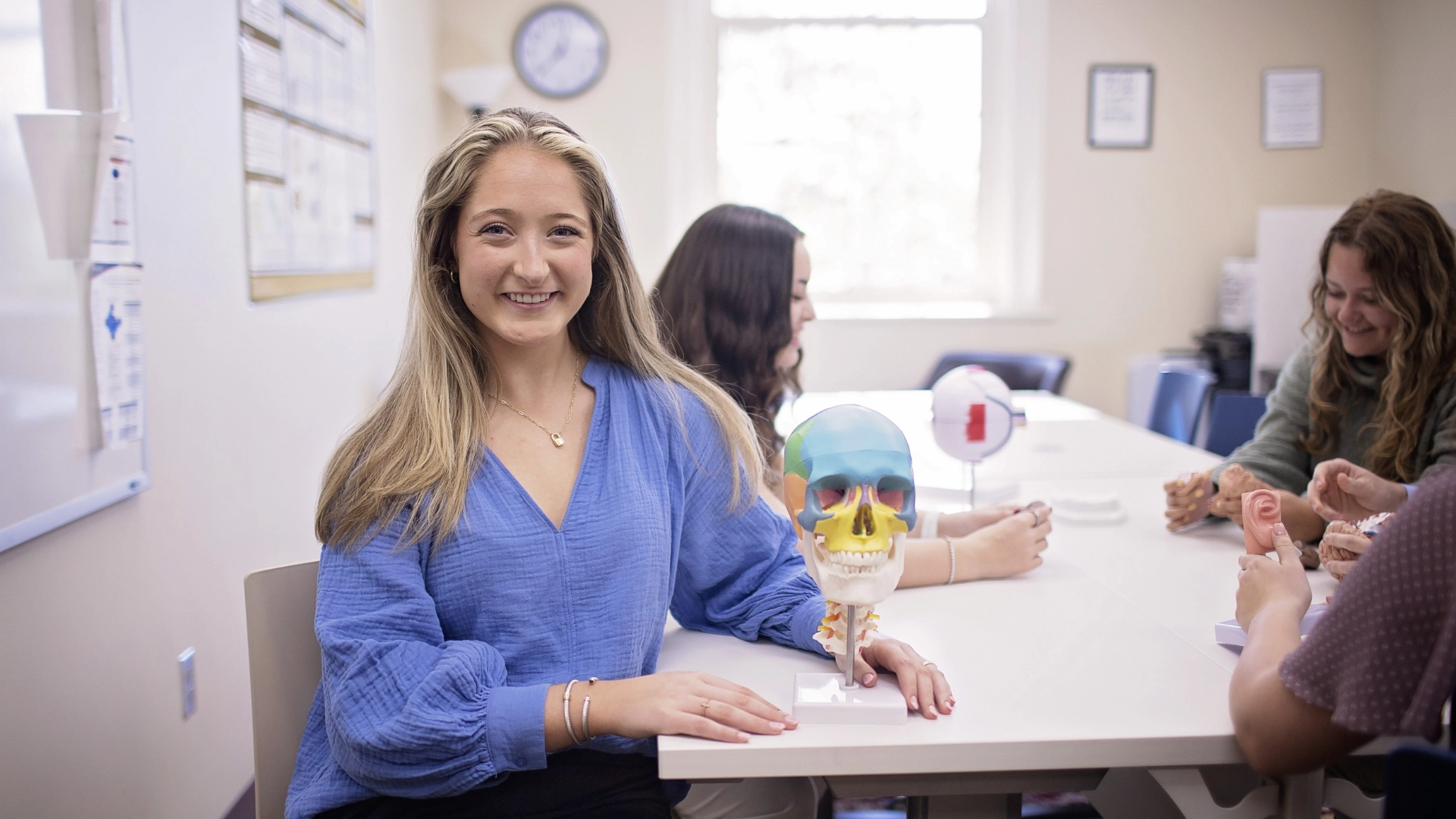Pursue a Degree in Psychology | Samford University

Psychology is the scientific study of behavior and mental experience.
Psychologists study any and all influences on our thoughts, feelings and behavior. A popular misconception about psychology is that it is about treating disordered behavior or it is about "getting in touch with your feelings." It is true that some psychologists study and treat disordered behavior, but this is just one area of a diverse, scientific field. Psychological research ranges from the structure and function of the brain all the way to the influence of culture on behavior. Psychologists can be found working in businesses, industry, schools, government, hospitals, research labs, as well as in private practice. This fascinating field is a synthesis of the social sciences, natural sciences and humanities.
In the Department of Psychology at Samford, our goal is to educate our students about all of the influences, both internal and external, that direct thought and behavior. Our students learn the principles of psychological research--the assumptions, methods, and reasoning used to understand thought and behavior--and the usefulness and limitations of such research. All of our students conduct original psychological research, and many present their research at local and national conferences. We take great pride in the many professional papers that our students have presented based on research they have conducted at Samford. Many of our students pursue graduate study in psychology and related fields, or go on to professional schools such as law, medicine, business, and seminary.

"I am confident in my ability to talk to professionals who are leaders in their fields because of the Department of Psychology. The professors have equipped me with the tools to prepare for job interviews or research assistant opportunities to ask challenging and pertinent questions to those offering up incredible positions." —Aiden Cooke, Psychology Major
The Department teaches psychology in a liberal arts context, which makes clear the interconnections between psychology and other disciplines, promotes critical reasoning skills and, consistent with the Christian mission of Samford, emphasizes the ethical and moral dimensions of psychology and psychological research. Finally, our students are trained to apply psychological knowledge to real world situations in an appropriate manner, and to be discriminating consumers of social and behavioral research.
Academic Programs
Undergraduate Majors
Psychology (BA)
Samford psychology majors learn about all the influences that contribute to human thought and behavior, ranging from basic neuroscience and genetics, through social and cultural influences. They develop a strong foundation in research skills, conduct their own research projects and think critically about behavior as they prepare for careers in clinical, counseling, school, forensic, sport, industrial and organizational psychology, gerontology, psychometry, law, education, ministry and health care.Learn More
Psychology (BS)
The bachelor of science in psychology major emphasizes the experimental areas of psychology, including neuroscience, cognitive science and learning, social psychology, health psychology and abnormal psychology. The major is especially valuable to students with an interest in the natural and computational sciences as well as cognitive and behavioral science.
Learn More
Neuroscience (BS)
Neuroscience is a modern version of the ancient human quest to understand ourselves. Unlike the ancients, we know that there is a dynamic, reciprocal relationship between the brain, thoughts, and behavior. This broad, interdisciplinary effort connects molecules to minds and reaches to the soul. Molecular and cellular biology, chemistry, and physics improve our understanding of how neurons create signals, while psychology, psychiatry, and neurology link neural processes and systems to the mind and behavior. Neuroscience depends upon a strong foundation in the behavioral and basic sciences, mathematics, statistics, and computer science. Samford's undergraduate neuroscience major provides a rigorous but flexible course of study that encompasses this broad field.
Learn More
Undergraduate Minors
Psychology
Students who earn a minor in psychology have a unique and significant advantage as professionals in business, religion, sociology, health care, journalism, communication, pre-law, biology, computer science or any other discipline that values understanding of human thought and behavior.
Learn More
Neuroscience
The field of neuroscience contains the greatest undiscovered body of knowledge in any area of biological, physiological and computational science. This rapidly-growing field covers a wide range of subjects including normal brain function, artificial intelligence, and the causes and treatments of neuropathological conditions. This interdisciplinary neuroscience minor compliments disciplines including: biology, psychology, biomedical engineering, criminal justice, philosophy, public health, education, kinesiology, business and economics.
Learn More
Psychology Scholarships
Staci Elise Carnley Endowed Scholarship
The Staci Elise Carnley Endowed Scholarship is open to any psychology major, but gives preference to upper-level female psychology majors from Alabama who aspire to a career in counseling or related areas.
Cookie Preferences | Privacy Policy | Software Plugins
Microsoft Excel®
Microsoft Power Point®
Microsoft Word®
Adobe Portable Document Format
